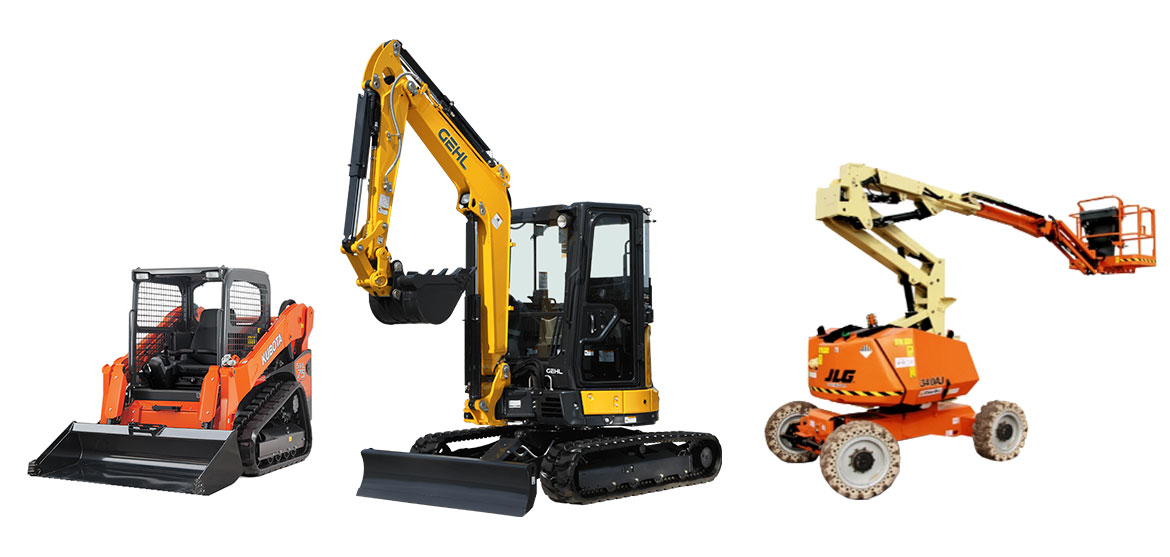Forklift Rental: Heavy Lifting Equipment for Warehousing and More
Forklift Rental: Heavy Lifting Equipment for Warehousing and More
Blog Article
Maximize Your Budget by Understanding the Prices Connected With Construction Devices Leasings
Comprehending the full extent of prices linked with building and construction devices services is essential for optimizing your spending plan. What approaches can be used to successfully handle these expenses and make sure a much more efficient rental experience?
Review of Rental Costs
When considering building devices rentals, recognizing the connected prices is critical for efficient budgeting and project planning. Rental prices can vary considerably based on numerous aspects, including devices kind, duration of service, and area. The preliminary rental charge commonly mirrors the tools's market need and its connected operational capacities, affecting the general expenditure.
In enhancement to the base rental rate, secondary expenses might develop, such as transportation fees, gas surcharges, and maintenance charges. It is necessary to represent these added costs to accurately evaluate the complete price of renting devices. Additionally, the rental duration can influence pricing; longer leasings may qualify for affordable rates, while short-term services could sustain higher everyday fees.

Failure of Rental Prices
A thorough understanding of rental rates is necessary for contractors and task supervisors aiming to enhance their budgets. Rental prices for building equipment usually contain numerous parts, including base rates, time-based fees, and usage fees.
Base rates are the core charges connected with the rental of the devices, often determined by the kind and dimension of the machinery. These rates can differ significantly, influenced by variables such as devices demand, accessibility, and regional market patterns. Time-based charges, which may be daily, weekly, or monthly, serve to fit various job timelines and rental periods.
Additionally, rental prices might consist of usage fees, which apply when tools is made use of past a defined limit, guaranteeing that the rental business can make up deterioration. Seasonal demand variations can likewise affect rental rates, with peak building periods commonly regulating higher prices.
In addition, understanding the rental firm's plans relating to upkeep and insurance policy can give additional understanding right into the general price structure. By examining these elements, service providers can make enlightened decisions, making sure the choice of rental equipment aligns with both project needs and budget constraints.
Extra Fees to Think About
Recognizing the ins and outs of extra fees is crucial for contractors to manage their overall rental expenditures effectively. Beyond the standard rental prices, various supplementary costs can considerably impact the total expense of tools service. These fees frequently include distribution and pick-up charges, which can differ based on distance and logistics involved in delivering the equipment to and from the work site.
Moreover, some rental firms might enforce fuel additional charges if the devices is returned Read More Here with less gas than when leased. It is additionally important to know prospective cleaning fees, particularly for specialized devices that needs comprehensive maintenance after usage.

Completely evaluating the rental arrangement and clarifying these added fees in advance can assist specialists stay clear of unanticipated prices and ensure that budgets stay undamaged throughout the task lifecycle.
Upkeep and Repair Work Expenses
Normal upkeep and fixing expenses are often ignored aspects that can significantly influence the total expense of construction tools services. When renting out devices, it is crucial to take into consideration not just the rental fees but likewise the prospective expenses connected with keeping the equipment in optimal operating condition.
Many rental firms include fundamental upkeep as component of the rental agreement; nonetheless, more substantial fixings or unforeseen malfunctions can bring about added expenses. It's necessary to review the rental contract thoroughly to comprehend what maintenance solutions are covered and what responsibilities fall on the renter.
Moreover, equipment that is not well-kept can lead to ineffectiveness on duty site, potentially boosting and creating hold-ups project prices. To minimize these threats, backhoe for sale by owner it is suggested to conduct routine examinations and preserve open communication with the rental supplier regarding any type of concerns that occur throughout use.
Insurance Coverage and Obligation Expenses
Insurance coverage and obligation prices are critical elements that can dramatically impact the overall cost of construction equipment services (dozer rental). These prices guarantee that both the rental business and the customer are safeguarded from possible monetary losses emerging from crashes, damage, or burglary during the rental period

Furthermore, customers ought to be mindful of any deductibles or exclusions in the insurance plan, as these can influence possible out-of-pocket expenses. Recognizing the terms and conditions of any type of insurance policy protection is vital to stay clear of unexpected prices. Inevitably, budgeting for insurance policy and responsibility expenditures can help guarantee a smoother rental experience and protect versus economic threats related to building tasks.
Conclusion
In conclusion, a comprehensive understanding of the costs linked with building equipment services is vital for effective budget plan management. Ultimately, notified decision-making pertaining to tools leasings adds to the total success of building endeavors.
Rental prices can useful source vary significantly based on numerous variables, consisting of tools type, period of rental, and area (equipment rental company). The rental duration can affect rates; longer services might qualify for reduced prices, while short-term services might incur higher daily charges
By carrying out comprehensive research and involving with reputable rental firms, professionals can effectively navigate the intricacies of rental pricing, inevitably maximizing their monetary resources.
Beyond the standard rental rates, numerous auxiliary costs can dramatically impact the complete price of equipment rental. Rental firms commonly give responsibility insurance policy that covers injuries to 3rd events or damages to residential property, while devices damage insurance can cover the price of fixings or replacement if the rented equipment is damaged.
Report this page